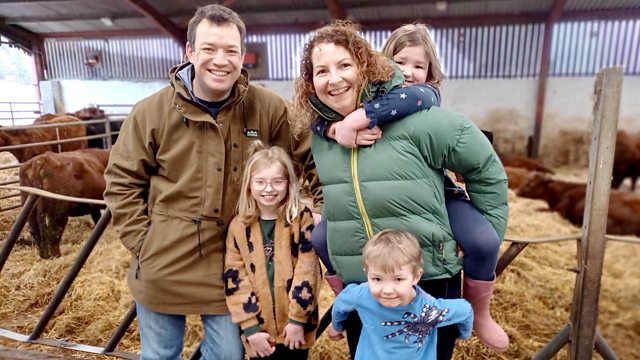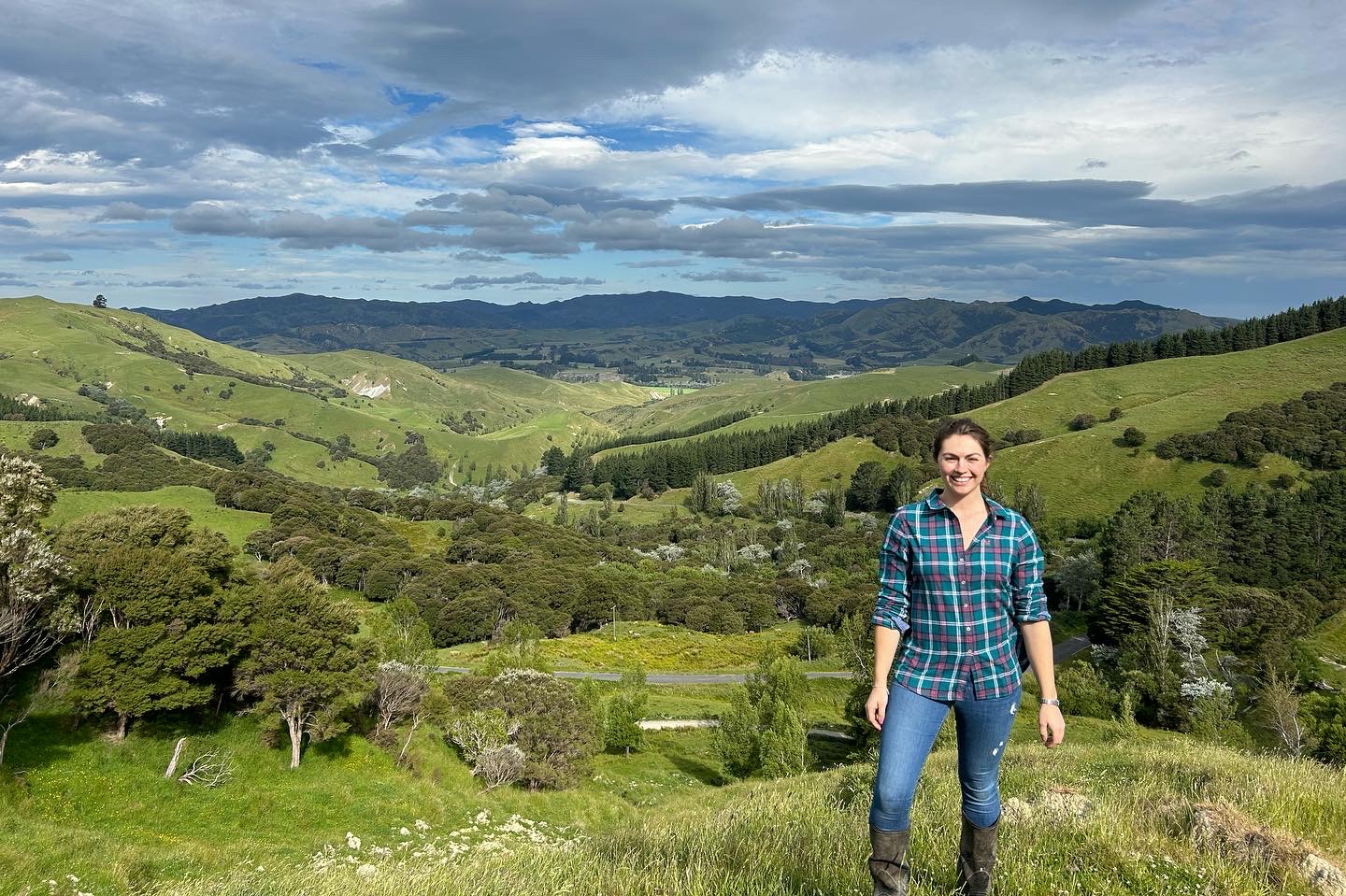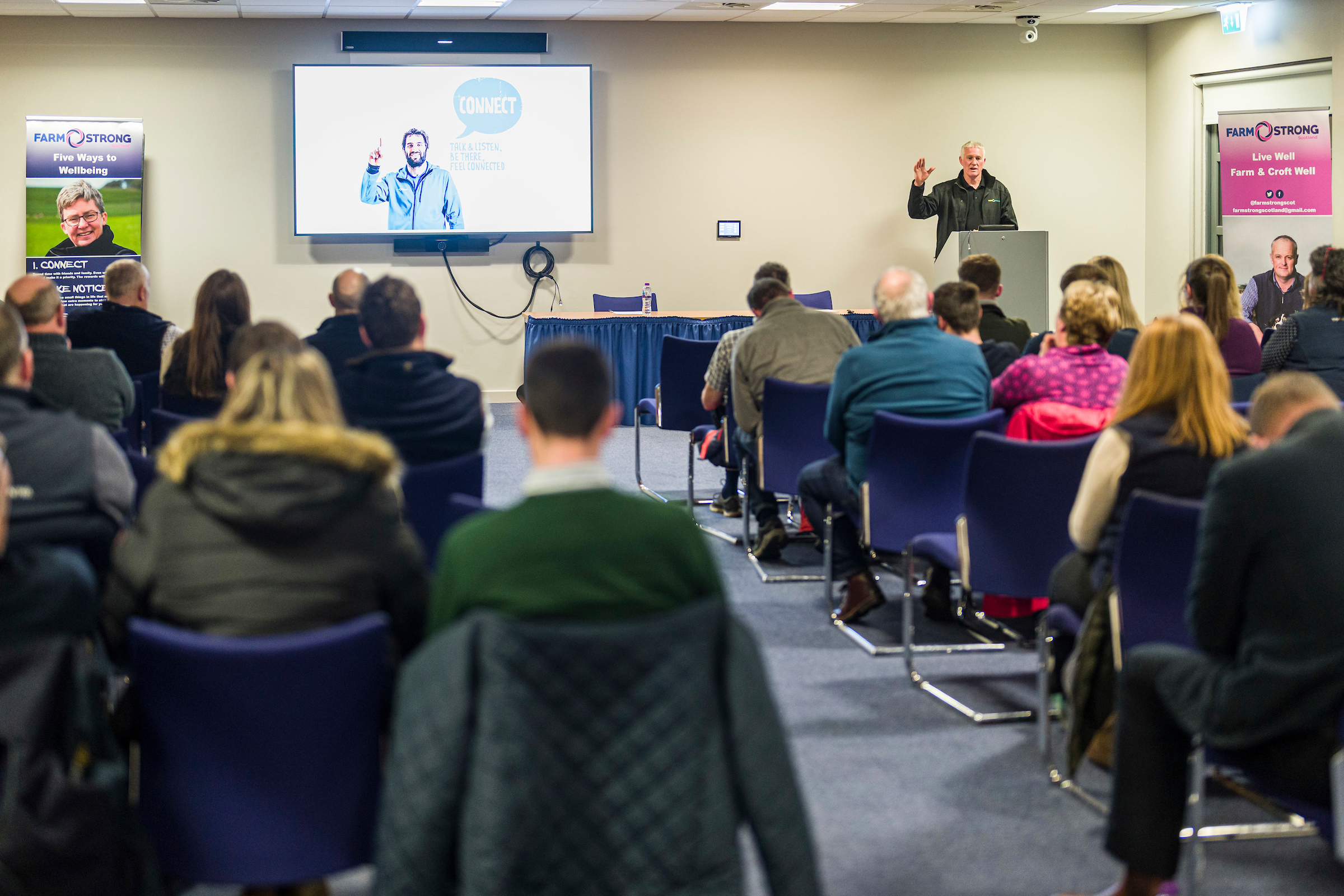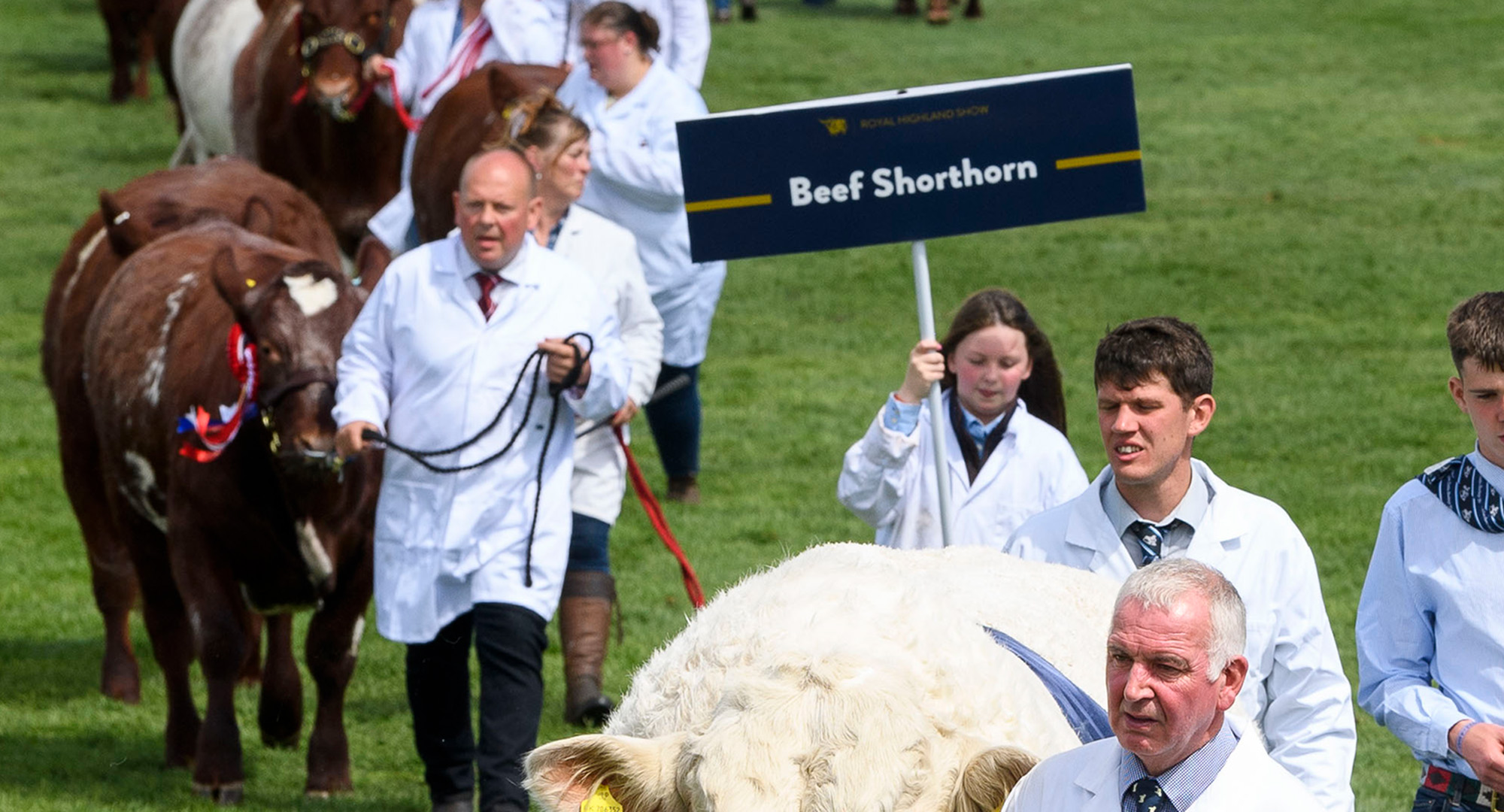Since the announcement of my successful Nuffield application, it has been a bit of a whirlwind in the proceeding 5 months.
The big event was the Nuffield Conference, held in Exeter back in November. Not only was this the first time that as a 2024 cohort that we got to meet each other, it was also when we got awarded with our Scholarships by HRH The Duke of Gloucester. A very special moment indeed.
On top of this though was just listening to the wealth of knowledge being disseminated by the presenting scholars from previous years, and the realisation of what I have to do in Aberdeen in 2025 when I will have the opportunity to present my topic. However there is a long road to go before I get to that position!
And it is going to be one helluva road! As I write this from an, increasingly less, unusually wet and windy Moray, I am planning visits in Uruguay, Chile, New Zealand, Australia and Japan. For someone who hasn’t travelled extensively and certainly not in the last 25 years, to say that I am massively excited is an understatement. It is tinged though with apprehension and the slight dread of not seeing the Wife and we’ans for 2 months. Thankfully they are meeting me in Japan where we are planning a fantastic couple of weeks as a family.
Before I get there though, kicking of my travels on the 3rd of march is a UK gathering of the scholars for 4 days and then we all travel to Brazil to meet up with the 100 or so scholars from around the world at the 2024 Contemporary Scholars Conference. This promises to be a massively intense 10 days but if past scholars’ experiences are anything to go by, it was be a hugely rewarding time and I am really looking forward to meeting all the other scholars from around the world.
In January I was fortunate to be invited to attend the Court Lunch at the Worshipful Company of Butchers. I had the opportunity to present my Scholarship to the Master and Wardens and also to make some excellent contacts that have helped open doors for my visits.
I have managed to visit the Aberdeen Angus Society and seperately speak to Andrew Duff at PR Duff, owners of the MacDuff1890 Brand. A visit and conversation with Robert Gilchrist at the Aberdeen Angus Society has been high on my priority list, not only for Roberts wealth of knowledge but also as Chief Executive of one of the oldest Breed Societies and arguably one of the first to link breed to eating quality. It is fair to say the meeting created more questions than provided answers but more questions are good at this stage in the proceedings. One of the key outcomes to the meeting was a pointer towards eating quality outcome measurements from Ireland that were linked to breed.
I was also keen to talk to Andrew Duff at MacDuff 1890 due to his businesses concentration on the quality end of the business. MacDuff 1890 would also be one of the largest processors of 100% pasture and forage fed beef in Scotland (my words not Andrew’s) and as a result is in a key place to judge quality of beef from such systems. The key takeaway from this conversation is that age to slaughter may play a significant role in MEQ outcomes and would be worth exploring further.
So as I prepare to leave the croft for the thick end of three months, I am trying to tidy up the last vestiges of paperwork and loose ends, plus get a couple more visits organised in the various countries that I am visiting. I have remarked on occasion that doing a Nuffield can appear to be the most selfish thing one can do and in some respects it is. But I am looking forward to the home team having a bit more autonomy about their daily roles in our businesses (I think they are too!) and the opportunities that I hopefully can bring back for our employees and also our family.
I am farmer and butcher from Dallas, Moray in the North of Scotland. Whilst I grew up on the farm and the butchery was always part of my early years, after graduating from Manchester University with a degree in Mechanical Engineering & Business Studies, I went on to be a building services engineer, firstly in Peterborough and latterly in Glasgow.
I moved back home in 2007 to take on the butchery and had to take on the farm suddenly in 2015. I am married to the long suffering Fiona, and we have three children Aila (11), Tilly (9) and Rory (6).
Nuffield Scholarship Topic:
Enhanced Meat Eating Quality from 100% Grass & Forage Fed Systems (https://www.nuffieldscholar.org/scholars/2024/jock-gibson)
Background
There are many proponents of a 100% grass and forage beef system with no concentrate feeds in the diet, and the perceived benefits that this has whether it is environmental, welfare or the nutritional benefit of the end product.
Indeed our own farm has transitioned to this system and is certified by the Pasture for Life Association (PFLA). This has brought many benefits to our system including improved gross margins of finished product, in addition to giving us a more marketable product that we then sell through our butchers shop by appealing to consumer demands.
Whilst the end product can consistently fulfil many quality markers, it is sometimes less successful on eating quality characteristics; arguably the most important of all.
Problem:
Located in the North of Scotland, we have essentially a 7 month grass growing period with which to grow cattle and finish them before they enter into a store period. In a UK context, extreme weather events may not enable farms to utilise pasture and forage effectively, extending finishing times and resulting in cattle entering 2 if not 3 store periods during their life. During the store period, the conventional aim is to have store cattle “ticking over” at roughly 500g of growth per day to then take advantage of compensatory growth when cattle are then able to be turned onto pasture and look to achieve between 1000g and 2000g per day.
However many issues exist around the nutrition of the animal during the winter store period with some proponents of the 100% grass and forage system advocating using lower quality forage in the form of deferred grazing, hay and indifferent quality silage. This can result in weight loss as growing cattle are unable to access suitable quality feed, so then use body reserves to maintain energy. Whilst this is not an uncommon method of wintering suckler cows, by allowing a period of weight loss in a growing animal, instead of building muscle and laying down fat, instead an animal lays down gristle which will clearly affect meat eating quality of the final product.
In addition it can adversely effect overall finishing times of cattle, as to reverse any growth checks can eat into the valuable window of opportunity to make best benefit of grass growth and animal compensatory growth.
Aims of the Project:
1. To fully understand the effects of animal diet and nutrition on meat eating quality
2. To explore different regimes of 100% grass and forage systems
3. To establish key principles in profitable systems delivering good meat eating quality outcomes including nutrient density
4. To explore the link between red meat consumption and personal well-being
5. To apply those principles to a Scottish/UK based production system.
6. To establish the key indicators of Meat Eating Quality
As a UK industry we talk a lot about meat eating quality, but we do not measure it and generally we do not produce for it. My hope is to understand how to produce excellent MEQ from a 100% grass and forage diet.
Study Destinations
During the course of my studies I plan to go to the following countries
- March – Uruguay & Chile
- April – New Zealand & Australia
- May – Japan
- July – UK
- September – North America & Canada
In all these countries, I plan to visit not only farms, but also Chefs, processors, and research institutions.
Find out more: www.macbeths.com
 Login
Login Login
Login




